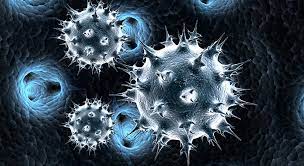Infectious diseases have long been a formidable challenge for humanity, shaping our history and influencing our daily lives. From the bubonic plague to the Spanish flu, these diseases have left an indelible mark on societies across the globe. Even in the modern era, with advancements in medicine and technology, infectious diseases continue to pose significant threats to public health.
Understanding infectious diseases is essential for combating their spread and minimizing their impact on individuals and communities. These diseases are caused by pathogenic microorganisms such as bacteria, viruses, fungi, or parasites, which can be transmitted from person to person, through contaminated food or water, or via vectors such as mosquitoes or ticks.
One of the key strategies in combating infectious diseases is prevention. Vaccination programs have been instrumental in eradicating or controlling many once-deadly diseases, such as smallpox and polio. Maintaining good hygiene practices, such as handwashing and proper food handling, can also help prevent the spread of infections.
In addition to prevention, raising awareness about infectious diseases is crucial. Education empowers individuals to recognize the signs and symptoms of infections, seek timely medical care, and take appropriate precautions to protect themselves and others. Public health campaigns and initiatives play a vital role in disseminating accurate information and dispelling myths and misconceptions surrounding infectious diseases.
Despite our best efforts, infectious diseases continue to present challenges, particularly in the face of emerging pathogens and antimicrobial resistance. The COVID-19 pandemic, caused by the novel coronavirus SARS-CoV-2, has underscored the importance of global cooperation and preparedness in responding to infectious disease outbreaks.
As we navigate the realm of infectious diseases, it is essential to remain vigilant and proactive. By investing in research, strengthening healthcare systems, and promoting health literacy, we can better equip ourselves to prevent, detect, and respond to infectious disease threats. Together, we can strive towards a healthier and more resilient future for all.
Remember, knowledge is our most potent weapon in the fight against infectious diseases. Let us continue to learn, adapt, and work together to safeguard the health and well-being of our communities.

